Genetic testing can unlock knowledge about your ancestry and health, but the quality of insights and customer service varies between companies.
For example, 23andMe and FamilyTreeDNA are both affordable testing services that deliver deep ancestry information. Still, while 23andMe offers a bigger DNA database and more features, its recent security and financial issues make FamilyTreeDNA an appealing choice despite its limited functionalities.
This FamilyTreeDNA vs. 23andMe review will help you understand the pros and cons of these popular services. You’ll learn about the types of reports they offer, their pricing, security practices, and other potentially deal-breaking factors.
23andMe vs. FamilyTreeDNA: A brief overview
Understand the basics of 23andMe and FamilyTreeDNA before we get into the specifics of their reports and services:
*Refers to ancestry analysis—health analysis may not be available in all countries.
FamilyTreeDNA: A less mainstream option for genealogists
Launched in 2000, FamilyTreeDNA (FTDNA) is a testing service that focuses on ancestry analysis. While it may not be the most popular option, FTDNA is a common choice among genealogy enthusiasts because it extensively analyzes haplogroups, especially paternal-line ancestors. The four main types of analyses it offers include:
Family Finder: An analysis of your recent ancestry based on your autosomal DNA, the genetic material you inherit from both parents
mtDNA: An analysis of your maternal-line ancestry based on your mitochondrial DNA
Y-DNA: An analysis of your paternal-line ancestry and surname timeline based on your Y sex chromosomes (for genetic males only)
Big Y-700: A deeper analysis of your paternal haplogroup and surnames (for genetic males only)
FTDNA can also match you with your autosomal, paternal, or maternal relatives from the database. It offers many other insights and features, including migration maps, chromosome browser and painter, and relative comparison matrices.
One feature unique to FTDNA is Group Project — you can collaborate with other users, share information, and reach your genealogy goals faster.
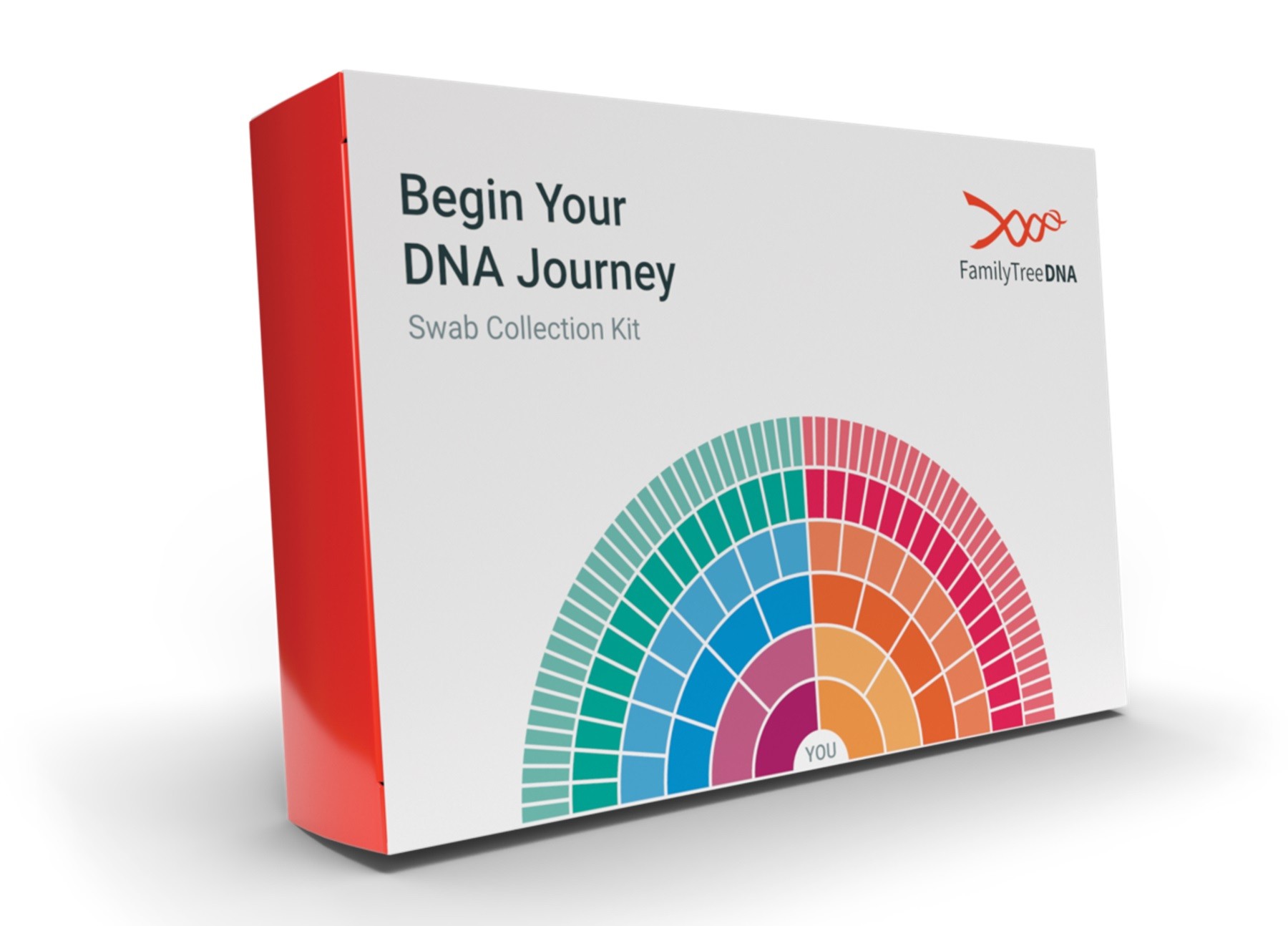
Source: FamilyTreeDNA
23andMe: Industry leader offering comprehensive DNA insights
Although 23andMe was founded six years later than FTDNA, it is one of today’s most widely used genetic tests, with one of the biggest DNA databases. 23andMe offers a broader range of reports and features than FTDNA — besides autosomal DNA and haplogroups, 23andMe provides reports for the following categories:
Historical matches
Family health history
Wellness
Health predispositions
Carrier status
Traits
23andMe has various other capabilities and has been expanding rapidly. Some of the most recent feature additions include historical record searches and advanced health analysis with exome sequencing.
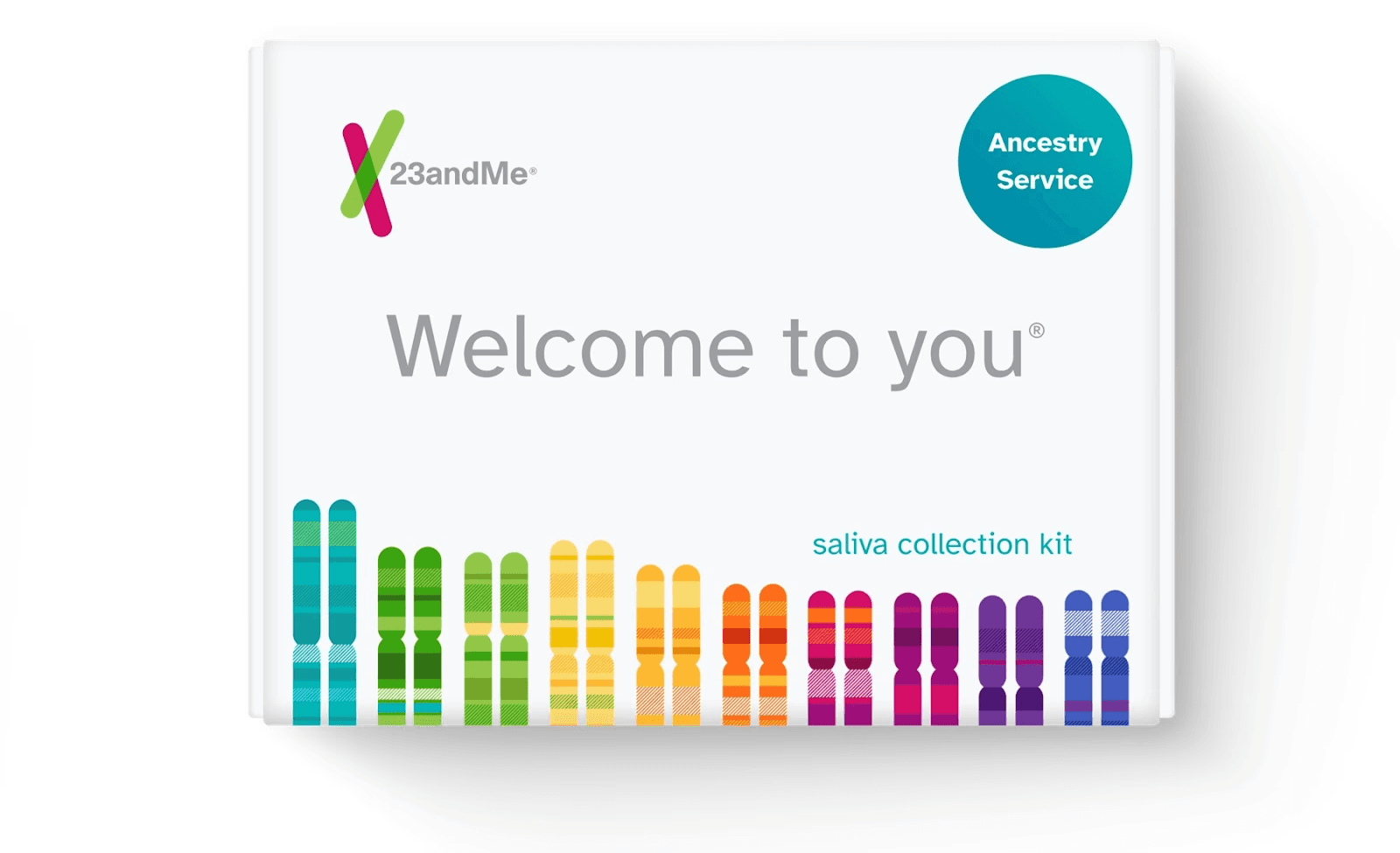
Source: 23andMe
Bonus read — See how 23andMe stacks up against other DNA testing services:
FamilyTreeDNA vs. 23andMe: A closer look
In the next sections, we’ll compare FamilyTreeDNA and 23andMe in greater detail, focusing on the following key factors:
Database size and coverage
Depth and quality of results
Sample collection process
Cost and value for money
Security and privacy measures
Customer service and user reviews
1. Database size and coverage
23andMe has the second-largest DNA database in the world, which currently counts over 14 million users. To analyze your recent ancestry and ethnicity, 23andMe will compare your DNA sample with the samples of people across 3,500 regions and 47 reference populations.
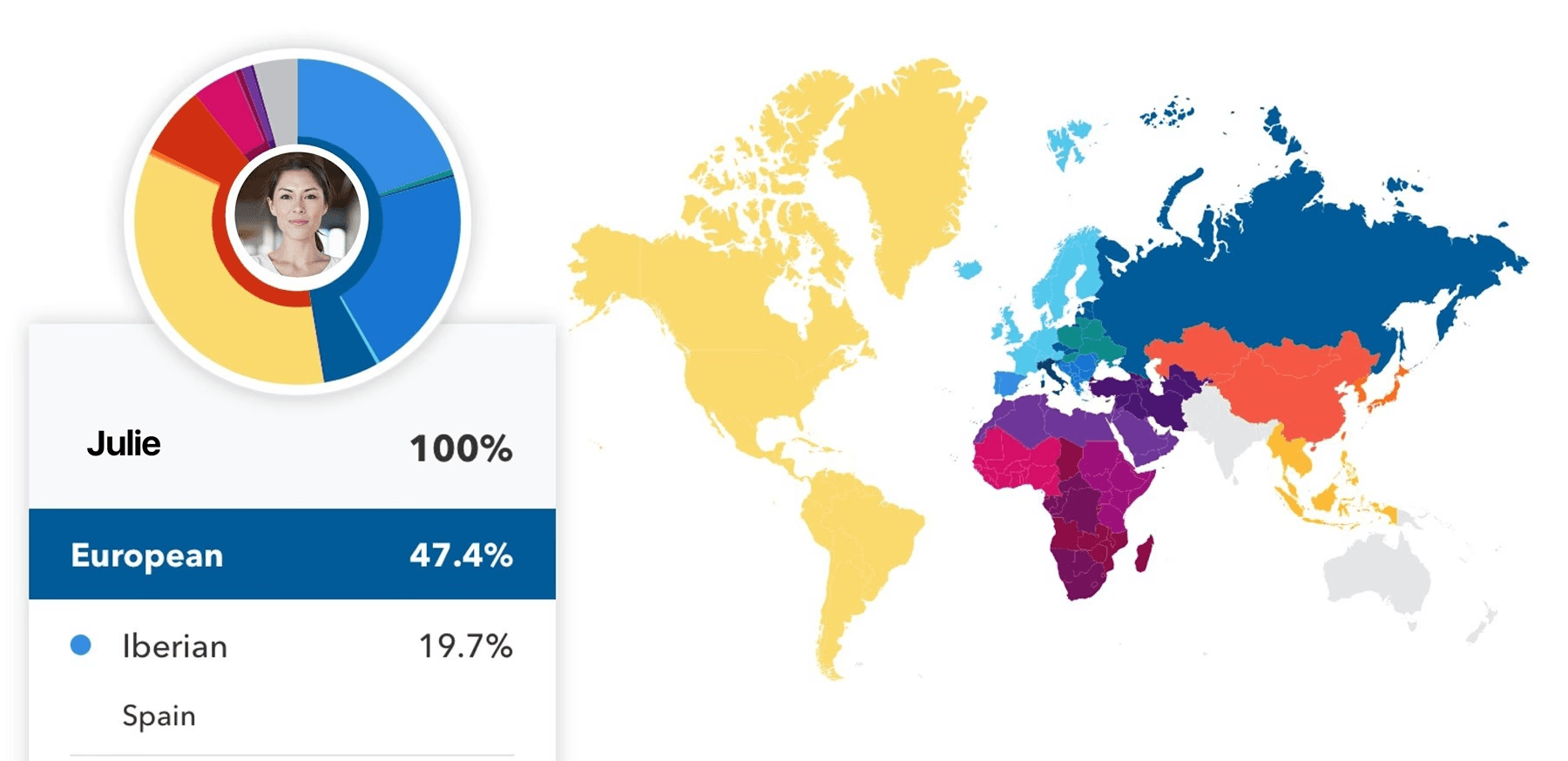
Source: 23andMe
FTDNA considers over 90 population clusters and has separate autosomal, mtDNA, and Y-DNA databases. While the company claims that its mtDNA and Y-DNA are the largest in the world, its overall DNA database contains only around 1.6 million users, nearly ten times less than 23andMe’s. Because of that, FTDNA may produce fewer matches and appoint your ancestral locations with less precision than 23andMe.
2. Depth and quality of results
When it comes to ancestry, both platforms offer extensive insights, including ethnicity percentages, recent and ancient ancestry, and relative matches. Here’s what type of information they provide:
While 23andMe offers more granularity and provides ethnicity estimates with country matches and genetic groups, FTDNA allows you to see where each segment of your DNA comes from.
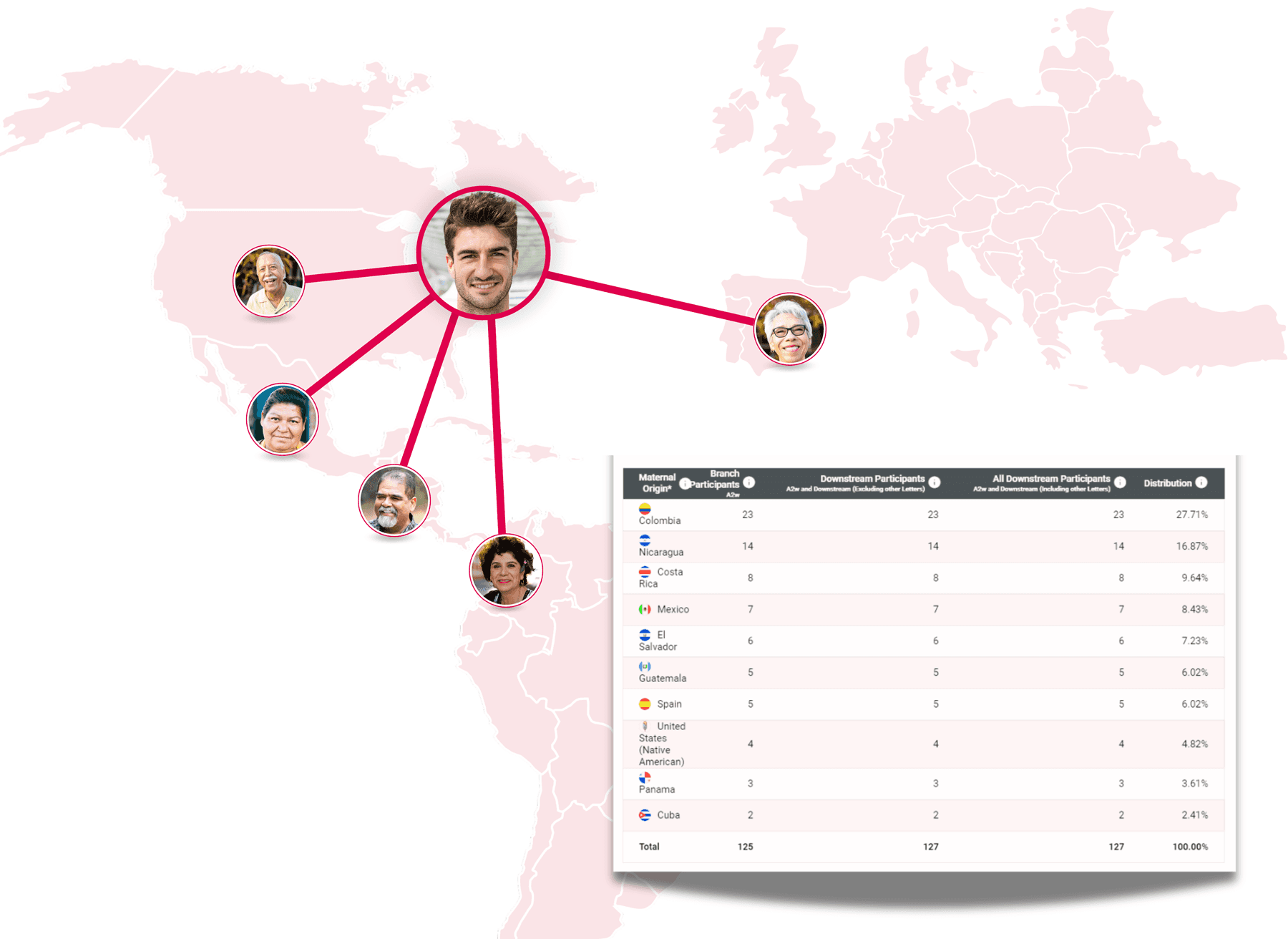
Source: FamilyTreeDNA
Accuracy-wise, neither platform is perfect, but according to numerous sources, 23andMe generates more precise results. The International Society of Genetic Genealogy (ISOGG) rated 23andMe with a 7 and FTDNA with a 3.5 but stated that both platforms fall short when it comes to European ancestry predictions.
On Reddit, many users consider FTDNA the top choice for haplogroup analysis, while 23andMe is often praised for providing more accurate ethnicity estimates. Read about one customer’s experience:
Health and trait reports
Since FTDNA's sole focus is ancestry, 23andMe is the obvious choice with its health predisposition, carrier status, and trait reports. Still, 23andMe is a consumer-grade test that relies on genotyping technology. As it analyzes less than 0.1% of your DNA, it can't offer comprehensive insights and may miss rare genetic variants that can greatly impact your health and life.
23andMe recently started offering exome sequencing analysis for its most premium tier subscribers. While more advanced than genotyping, this method still analyzes only a small portion of your genes. If you want an all-encompassing analysis of your DNA risks and traits, whole-genome sequencing is the better option.
Although whole-genome testing typically costs thousands, Nucleus makes the technology accessible at [PRICE.KIT_SOLO.ONE].
Unlike 23andMe, Nucleus Premium is a physician-ordered test that decodes nearly 100% of your DNA, which allows it to provide health reports with 99.9% accuracy. The test reveals how your genes affect your predisposition to various common and rare diseases, hereditary conditions, and traits.
By understanding your DNA’s full story, you can confidently manage your health and make informed decisions about family planning.
3. DNA sample collection
The sample collection process is generally simpler with FTDNA than with 23andMe. FTDNA only requires you to rub the inside of your cheek with a swab and place the swab in the vial.
With 23andMe, you need to collect your saliva in the provided tube and add the stabilization buffer within 30 minutes. Most people should find this process easy, but those who have an underlying disease or take medication that causes dry mouth may struggle to produce the required amount of saliva.
Both platforms recommend you avoid smoking, chewing tobacco or gum, and consuming food and drinks 30 minutes before taking the test.
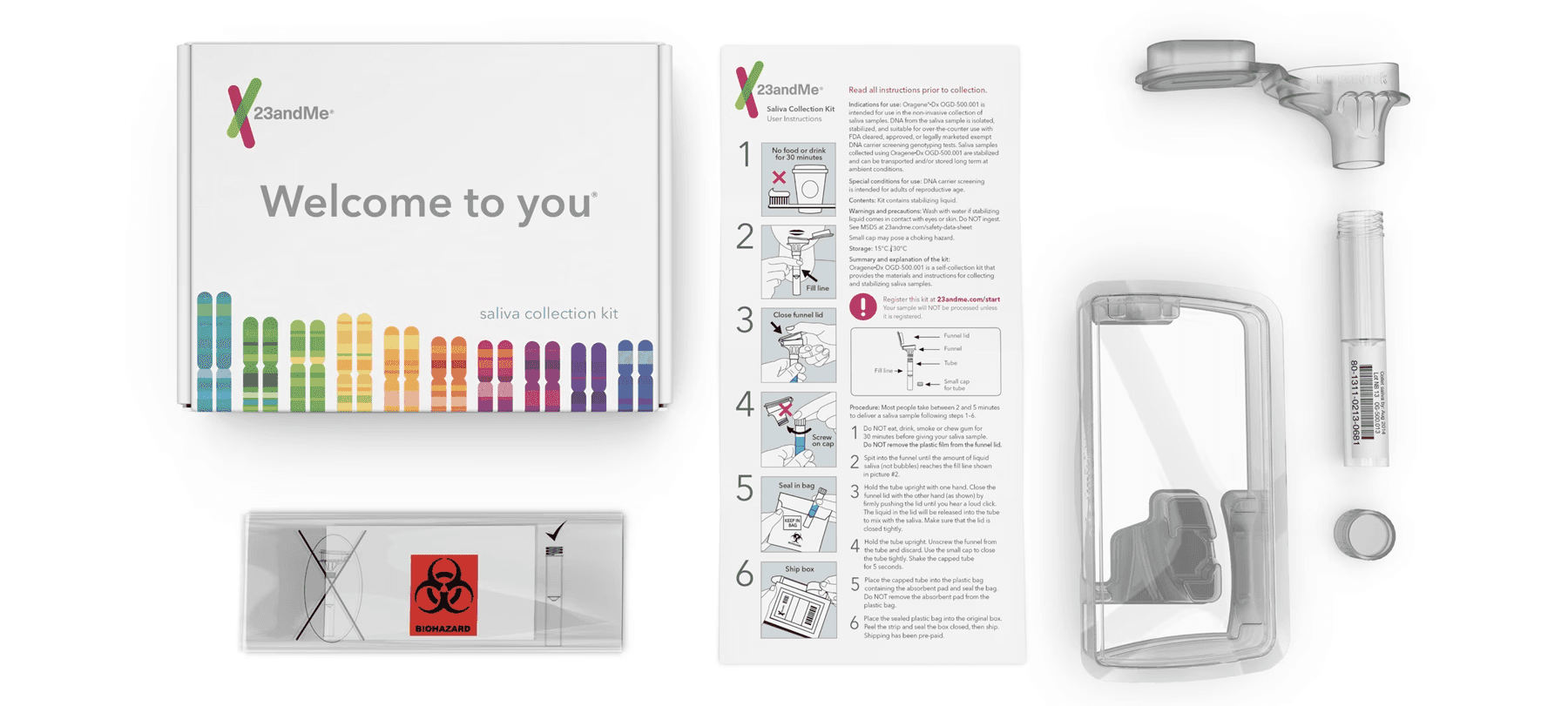
Source: 23andMe
4. Cost and value for money
FTDNA is more affordable on paper, offering the basic Family Finder test for $79 and its most extensive Big Y-700 test for $449. 23andMe’s services range from $119 to $999 — see what the options are below:
Both platforms store your sample for a long time, allowing you to upgrade your plan without requiring an additional DNA sample.
While 23andMe may be more expensive, it seems to offer slightly more for the price. As an example, let’s compare their most basic ancestry tests:
Bonus read — We’ve reviewed and compared many other genetic testing services:
5. Security and privacy
FTDNA and 23andMe claim to take numerous measures to protect your DNA and personal data. They allegedly give you full control over your information, never using or sharing it without your consent.
Still, both companies have faced criticism regarding their privacy practices. FTDNA admitted to providing genetic data to the FBI in 2019. Although this action didn’t violate the terms of service and the data was supposedly used to solve crimes, the company failed to notify the users.
23andMe suffered a major security breach in 2023. This incident exposed data from seven million users — about half of the company’s customers. The data included names, addresses, and genetic heritage, with the intention of selling them on the dark web. To make matters worse, 23andMe concealed the incident for months, leading to discontent and even lawsuits from users.
The company has since agreed to pay a $30 million settlement and tighten its security measures, but its reputation and sales suffered significantly. Today, 23andMe is in a difficult financial situation, and its CEO is contemplating selling the business. This has left users concerned about the future handling of their sensitive data.
How to delete your data from 23andMe
Given the company’s past lapses and ongoing concerns, you may want to remove your personal and genetic information from 23andMe to keep it safe. Here’s how you can do that:
Log in
Go to your Account Settings
Navigate to the 23andMe Data section
Select View
Select Permanently Delete Data
Confirm your request upon receiving an email from 23andMe
23andMe will delete your account and personal information and destroy your sample if you’ve selected the option, though this process can take 30 days or more. Even if you complete the deletion, 23andMe’s labs may retain some of your non-identifying information for research purposes, but only for up to three years.
If you’d like to keep your 23andMe data, you can download it before deleting the account. Make sure to do so well ahead of time as some files may take up to 30 days to prepare.
6. Customer service and user reviews
Looking at Reddit and popular review sites like Trustpilot, both platforms receive mixed opinions. FTDNA seems to have better ratings, though, as you can see below (sourced December 2024):
FTDNA is praised largely by genealogy enthusiasts, who appreciate the platform’s unique and deep focus on mtDNA and Y-DNA analysis. Many reviewers also state that FTDNA’s customer service is excellent.
As for the negatives, they mention problems such as an outdated and slow website and technical glitches. Additionally, some users are disappointed with FTDNA’s recent discontinuation of the family tree builder. You can now access this functionality through MyHeritage, which may require an additional expense in some cases.
As for 23andMe, users like its wide selection of features and regular updates. The negative reviews refer mostly to the recent security concerns and customer service issues like:
Shipping and processing problems
Unreachable or unhelpful customer support
Being locked out of the account
Double or unwarranted charges
Being unable to get a refund when it’s due
Check out one user’s thoughts on 23andMe’s customer service:
FamilyTreeDNA vs. 23andMe: Takeaways
FTDNA is a popular choice among genealogy enthusiasts because of its detailed haplogroup analyses. In contrast, 23andMe is focused on quantity, offering numerous reports and features even with the cheapest test.
Still, the security mishaps, customer service issues, and uncertainties about the company’s future raise doubts about its current reliability. These concerns aside, 23andMe can’t completely assess your health because it uses limited genotyping technology.
For comprehensive and detailed insights into your health and traits, choose Nucleus Premium, a whole-genome test. Nucleus is clinical-grade and analyzes almost all of your DNA, providing valuable information to inform your lifestyle and family planning choices — all while being HIPAA-compliant and keeping your data safe.
Discover your DNA’s complete story with Nucleus
Nucleus Premium is a physician-ordered test that provides all-in-one insights about your health, potential risks, and traits. Nucleus uses the latest whole-genome sequencing technology to decode nearly all 6 billion bases of your DNA, including rare variants that most consumer-grade tests miss.
Nucleus screens for over 800 diseases and conditions, such as those related to:
Heart health
Cancer
Neurology
Food and diet
Focus and energy
Mental health
Your environment and lifestyle choices can sometimes significantly alter the expression of your genes. Because of that, Nucleus will consider these factors to calculate your absolute risk scores and give a more accurate and personalized health assessment.
As for trait reports, they reveal if and how your genes may influence your intelligence, longevity, BMI, and many other aspects of your life.
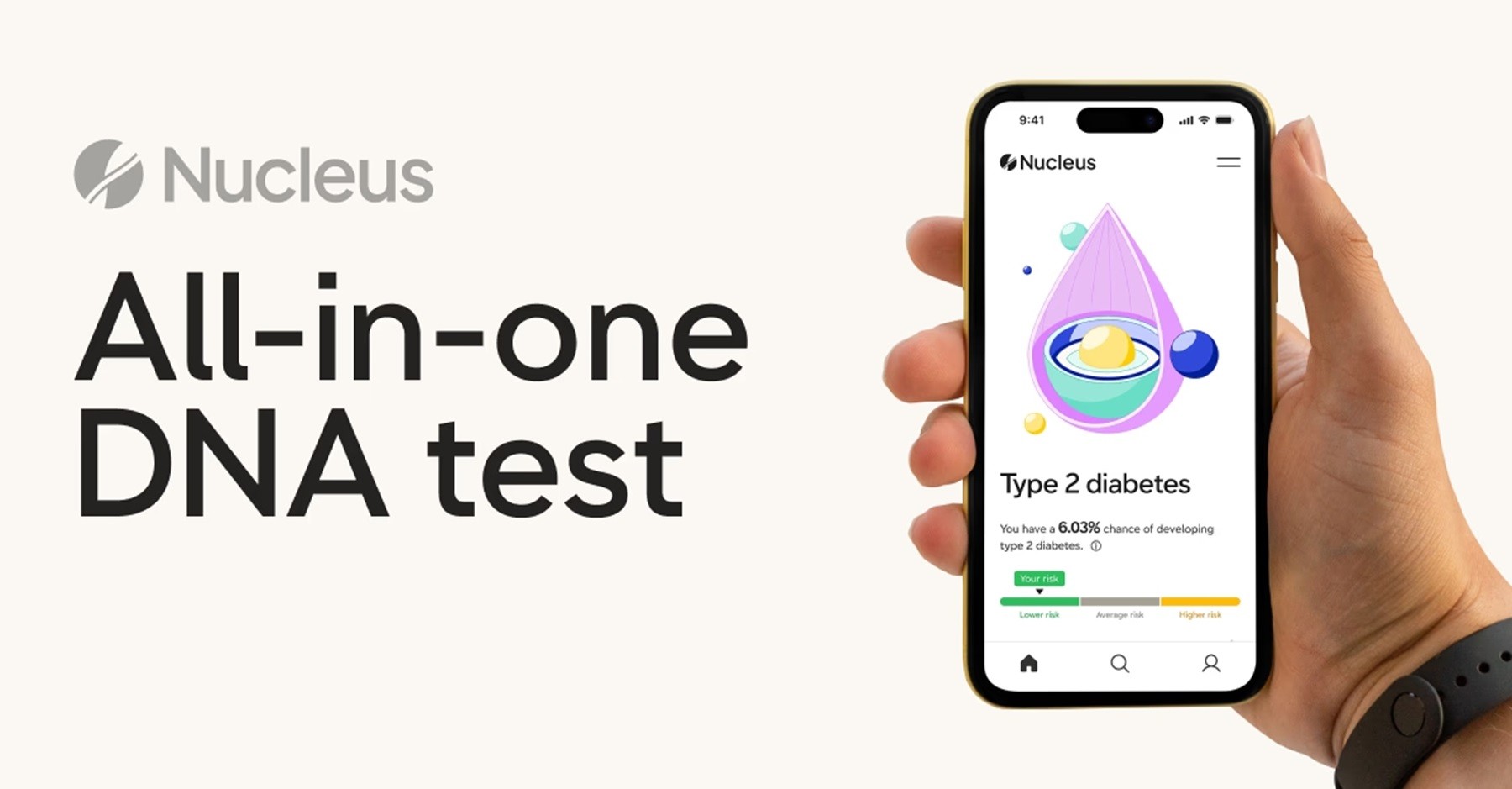
Nucleus’ reports use clear language and should be easy to follow. Still, if you have any questions about your results or need guidance on the best course of action, Nucleus can connect you with a genetic counselor via SteadyMD.
Nucleus: Simple and affordable
Nucleus Premium is one of the most affordable whole-genome tests today. It costs only [PRICE.KIT_SOLO.ONE], allows you to pay with your HSA/FSA plan, and includes all available health and trait reports. Here’s how you can get your kit:
Provide your personal information
Place an order
Once the kit arrives, all you need to do is swab your cheeks and mail back the sample. You’ll receive your results online in six to eight weeks. Additionally, you can choose to receive new reports as Nucleus discovers new information about genetics and your risk factors.
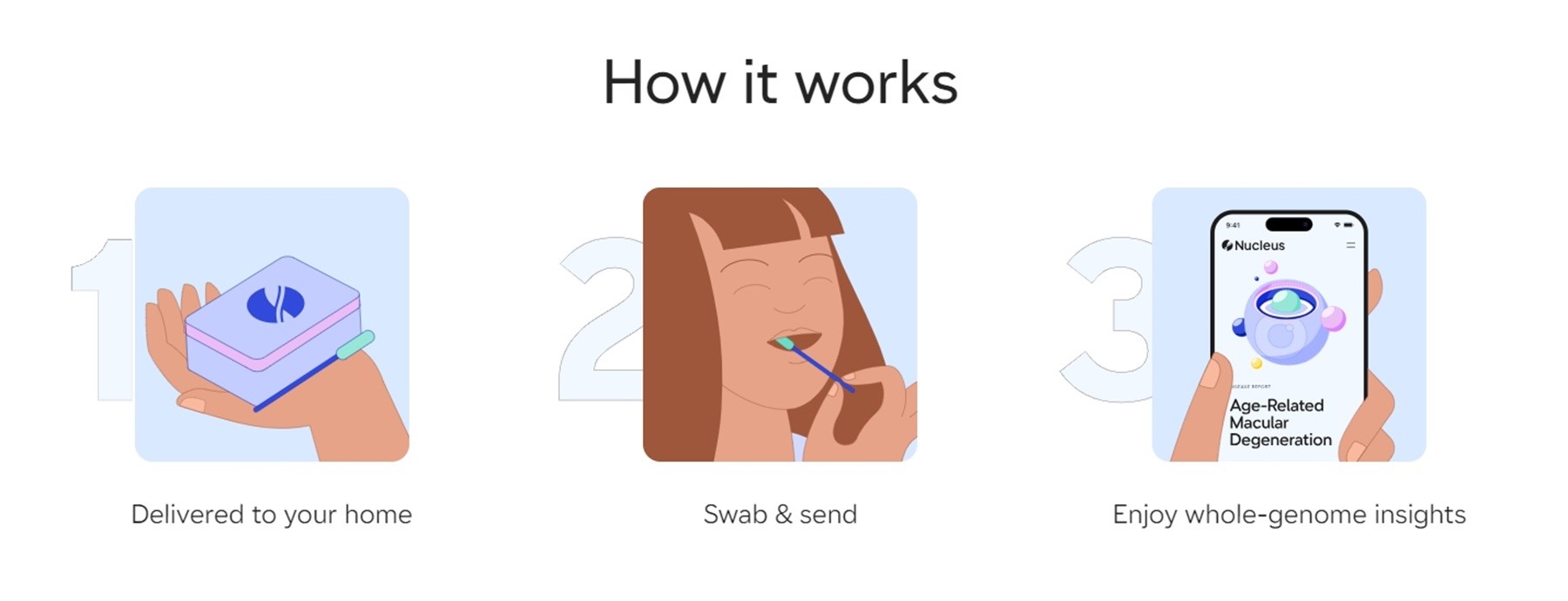
Unlike 23andMe, you can trust Nucleus to handle your data with utmost care. The platform is fully regulated and processes all of its data in certified U.S. labs that abide by the highest testing standards and use U.S. machines.
You may also like…
Discover other articles on genetic testing services and technologies:
Featured image source: Mahmoud-Ahmed












